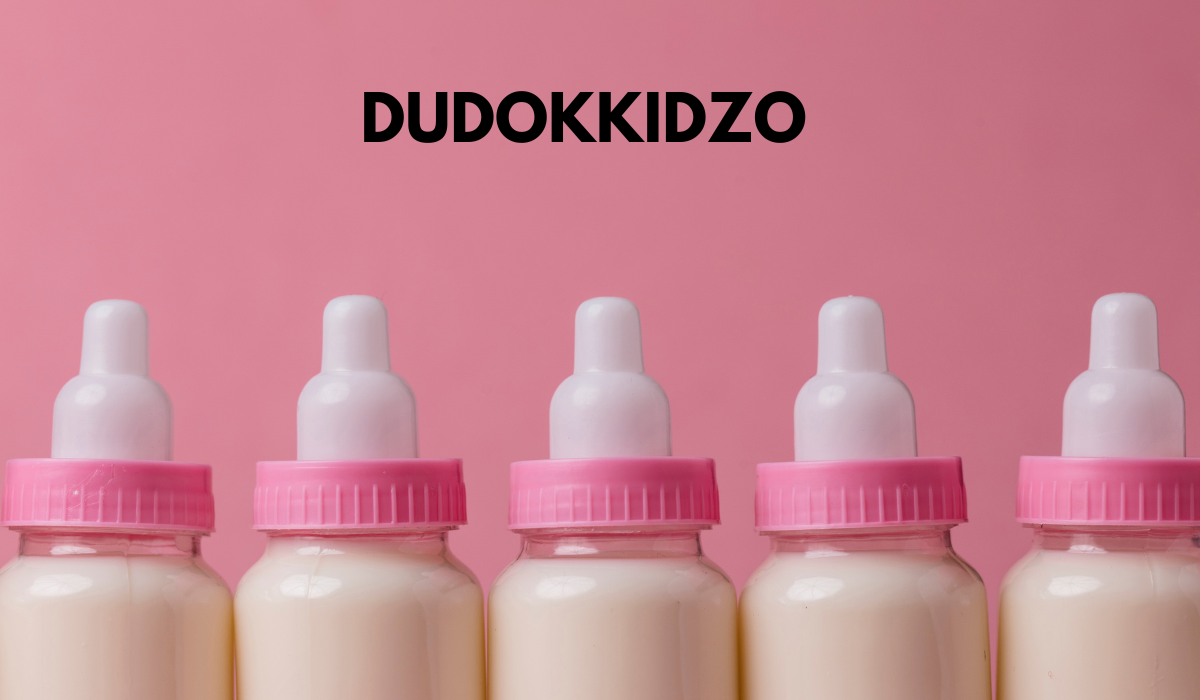How to Keep Dudokkidzo (Milk-Dependent Infant): A Detailed Guide to Nurturing Love and Health
Introduction
Caring for a baby dependent on milk, whether breast milk or formula, requires love, patience, and a deep understanding of their needs. These precious early stages of life are crucial for a child’s growth and development, and how you care for them can impact their health and happiness. If you’re caring for a “dudokkidzo” (perhaps your term for these milk-drinking little ones), this guide will walk you through all the essentials needed to nurture them with excellence.
From feeding routines to hygiene and sleep to emotional bonding, understanding the nuances of baby care will leave you well-prepared to handle the joys and challenges of raising a newborn. Here’s everything you need to know.
The Golden Rule of Caring for Dudokkidzo
The core of caring for milk-dependent babies is twofold:
- Providing proper nutrition, warmth, and comfort to aid physical growth and emotional security.
- Ensuring cleanliness, routine, and a loving environment to foster a sense of safety and trust.
Accomplishing these objectives requires focusing on some foundational aspects of baby care, which we’ll now explore in detail.
Proper Feeding Techniques for a Healthy and Happy Baby
The Importance of Milk
Milk is the most critical source of nutrition for a dudokkidzo. Whether breastfeeding or using the formula, feeding your baby in these early stages profoundly affects its growth, immunity, and overall health.
Tips and Techniques for Successful Feeding:
A. Establish a Feeding Schedule:
Babies usually should generally be taken care of every 2-3 hours. Pay attention to hunger cues, such as sucking motions, crying, or rooting for the breast. Be flexible enough to adapt the schedule if your baby seems hungrier than usual (growth spurts happen!).
B. Find Comfortable Positions:
Find the best positions for feeding sessions to make them enjoyable for you and the baby best positions. Popular ones include the cradle hold, football hold, or laid-back breastfeeding for nursing mothers. For formula-fed babies, ensure the bottle is positioned to prevent air ingestion.
C. Burping is Key:
Babies often swallow air during feeding, which can lead to discomfort or gas. Always burp your child after every feed to ensure they feel relaxed and soothed.
D. Hydration for Moms:
If breastfeeding, drink plenty of water and eat a nutrient-rich diet to maintain your milk supply and energy levels.
Pro Tip (Formula Users):
Always check the formula’s expiration date and strictly follow the mixing instructions. Using clean, sterilized bottles is a non-negotiable step to keep your baby safe from potential infections.
Cleanliness Equals Health
Your dudokkidzo’s immune system is still developing, making them vulnerable to illnesses. Maintaining a clean environment helps protect them from infections and health issues.
Essential Hygiene Practices:
1. Hands First:
Always wash your hands before handling your baby, especially before feeding or changing diapers.
2. Sterilize Feeding Equipment:
Bottles, nipples, or breast pump parts should be sterilized after every use to ensure they remain germ-free.
3. Regular Diaper Changes:
Change diapers promptly and clean the baby’s bottom with warm water or wipes. Apply a hindrance cream to forestall diaper rash.
4. Bath Time:
Give your baby a bath 2–3 times a week using lukewarm water and gentle baby soap. Focus on their neck folds, underarms, and other areas prone to sweat and milk residue.
Amazing Fact💡 Did you know? Babies recognize your scent and derive a sense of security from your touch. Holding and clean interactions aren’t just essential for hygiene. They’re necessary for bonding, too!
Prioritizing Sleep for Optimal Development
Sleep is as vital as milk for your dudokkidzo. During sleep, essential growth hormones are released, and their little brains strengthen neural connections that form the foundation for cognitive and emotional development.
How to Help Babies Sleep Better:
A. Create a Calm Environment:
Use light dimmers or blackout curtains, and avoid loud sounds during nap times. A quiet and cosy room helps your baby drift to sleep more easily.
B. Stick to a Sleep Routine:
Establish a predictable bedtime routine, such as a gentle bath, a loving song, or reading aloud to soothe them before sleep.
C. Focus on Safe Sleep Practices:
Place your baby on their back to sleep, and make sure the crib is free from pillows, blankets, or stuffed toys that may pose a suffocation hazard.
Newborns often sleep up to 16–18 hours a day. However, sleep patterns will change rapidly as their brains and bodies grow, so be prepared to adapt your routine!
Fostering Connection Through Skin-to-Skin Contact
Have you heard of the “kangaroo care” technique? Holding your dudokkidzo close, skin-to-skin has countless benefits. This simple act regulates the baby’s body temperature, heartbeat, and stress levels. It also fosters a sense of closeness and emotional security with you.
Tips for Skin-to-Skin Bonding:
- After feeding, place your baby on your chest and speak softly to them.
- Gentle stroking or lightly massaging their arms and legs further strengthens the bond.
This connection helps you better understand your baby’s non-verbal cues, allowing you to respond to their needs more quickly and instinctively.
Take Care of Yourself Too!
Caring for a dudokkidzo can be a 24/7 job, and it’s easy to overlook your own well-being. However, you can’t pour from an empty cup. Taking care of yourself ensures you’re at your best for your little one.
Self-Care Tips for Caregivers:
- Rest whenever you can. Sleep deprivation is common but manageable with short naps during your baby’s sleep.
- Accept help from loved ones. Whether it’s meal prep or babysitting, even small acts can take a load off your shoulders.
- Stay emotionally connected. Sharing your joy and challenges with close friends or family can ease any emotional strain.
Remember, a happy caregiver equals a happy baby!
FAQs About How to Keep Dudokkidzo
Q1. How often should I feed my newborn?
A. Feed your newborn every 2–3 hours or on demand if they show clear signs of hunger.
Q2. When can I stop sterilizing bottles?
A. To ensure safety, You should continue sterilizing bottles until your baby is at least 12 months old.
Q3. How can I tell if my baby is getting enough milk?
A. A well-fed baby has at least six wet diapers daily, appears content after feeding, and steadily gains weight.
Q4. How can I soothe a fussy dudokkidzo?
A. To calm a fussy baby, try swaddling, gentle rocking, a warm bath, or soft white noise.
Q5. Do I need to wake my baby up for feeding?
A. Yes, especially during the first weeks. Newborns must be gently awakened to ensure consistent, healthy feeding patterns.
The Perfect Beginning for a Precious Life
Caring for a dudokkidzo can initially seem overwhelming, but believe in yourself and trust your instincts. It’s a steep learning curve filled with tender, unforgettable moments. By following these tips, whether mastering feeding schedules, hygiene, sleep routines, or self-care practices, you’ll be on your way to providing the best possible start to your little one’s life.
Cherish these days because they grow up faster than you can imagine! To ensure you continue feeling confident on this parenting adventure, keep exploring and staying curious about your dudokkidzo’s needs. Your love, care, and knowledge are their greatest gifts.




Post Comment